
An important step in the modernization of the Museum der Arbeit began in January 2022 with the conversion of the Torhaus. In the renovated rooms, educational workshops were created on the newly created upper floor and the Zukunftswerkstatt on the first floor.
The concept of the Zukunftswerkstatt is based on the Museums der Arbeit guiding principle, which uses Hamburg as an example to document the changes in the world of work and the associated effects on people. In addition, the Museum der Arbeit is a platform for current social and political discussions. It aims to gain knowledge about the past in order to understand the complexity of the present and shape the future. It sees exhibitions as spaces for communication and aims to encourage discussion and reflection. It takes a critical look at current social issues and creates spaces for thought.
The design by studio lose, which was selected in a competition and has now been realized, is a workshop for working together on the future. Various modules are based on classic workshop trolleys and at the same time are tools in their own right, enabling a variety of accessible exhibition, workshop and event formats that can be rearranged again and again.


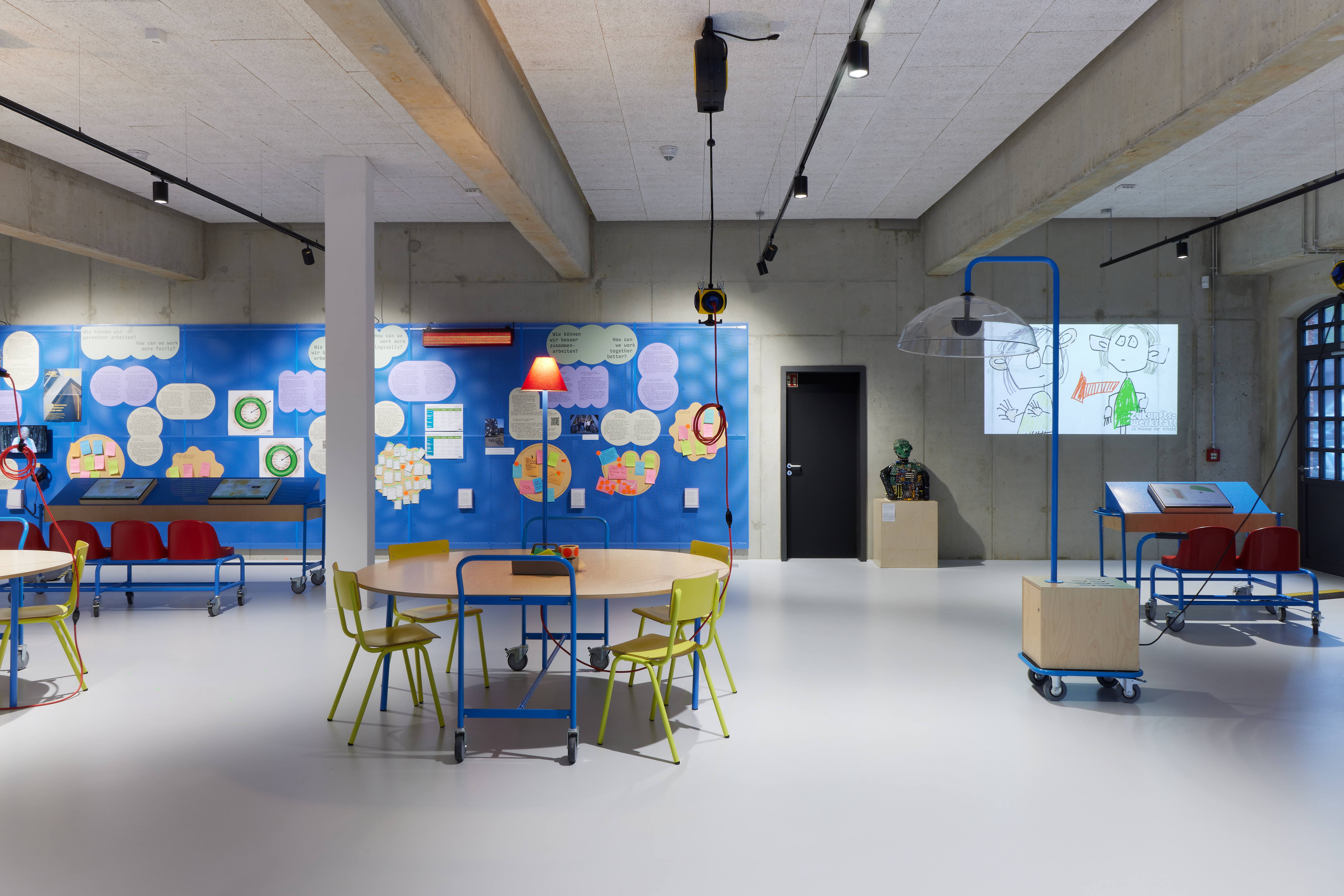


Museum der Arbeit, Stiftung historische Museen Hamburg.
Curation: Kareen Kümpel · Nina Szogs
Exhibition design: studio lose (Ina Römling · Torben Körschkes · Frieder Bohaumilitzky)
Photos: Anne Linke
Curation: Kareen Kümpel · Nina Szogs
Exhibition design: studio lose (Ina Römling · Torben Körschkes · Frieder Bohaumilitzky)
Photos: Anne Linke
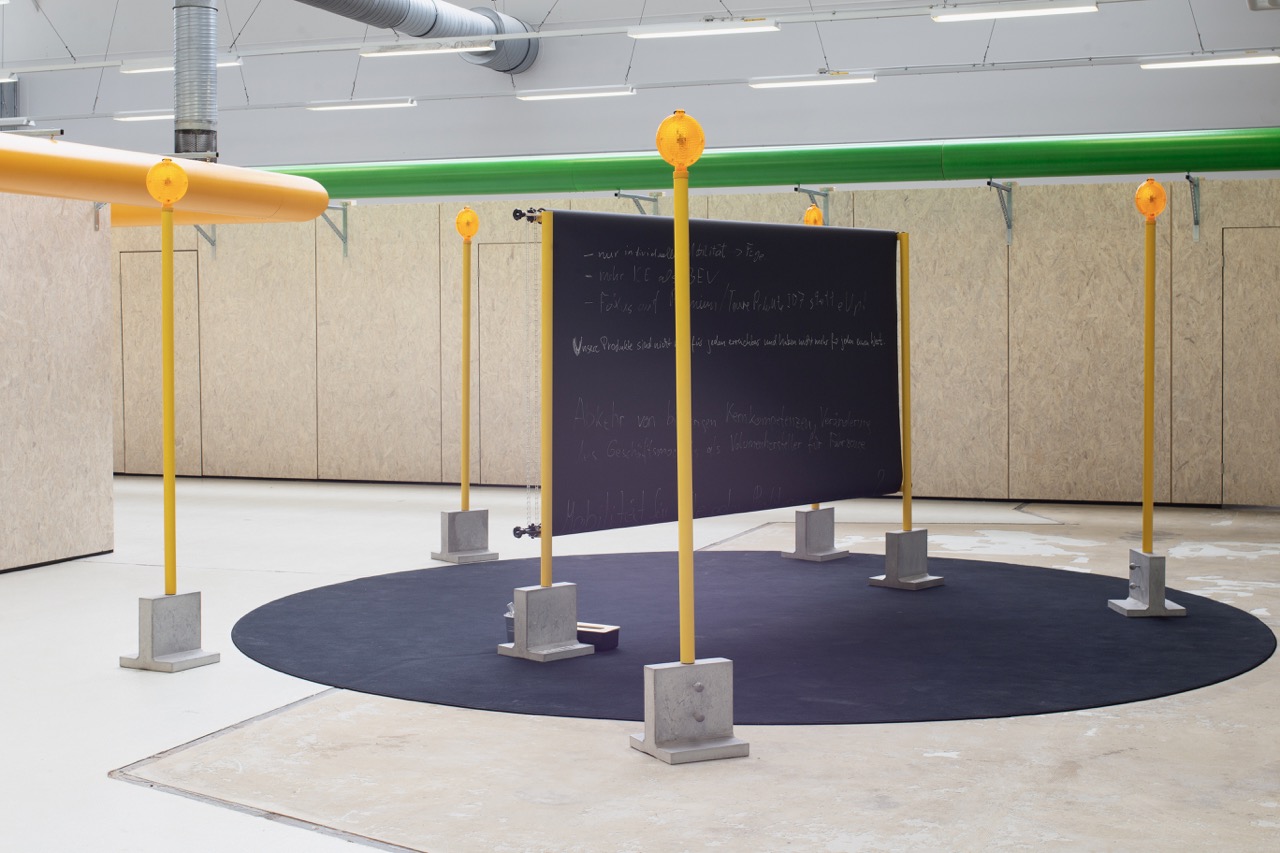
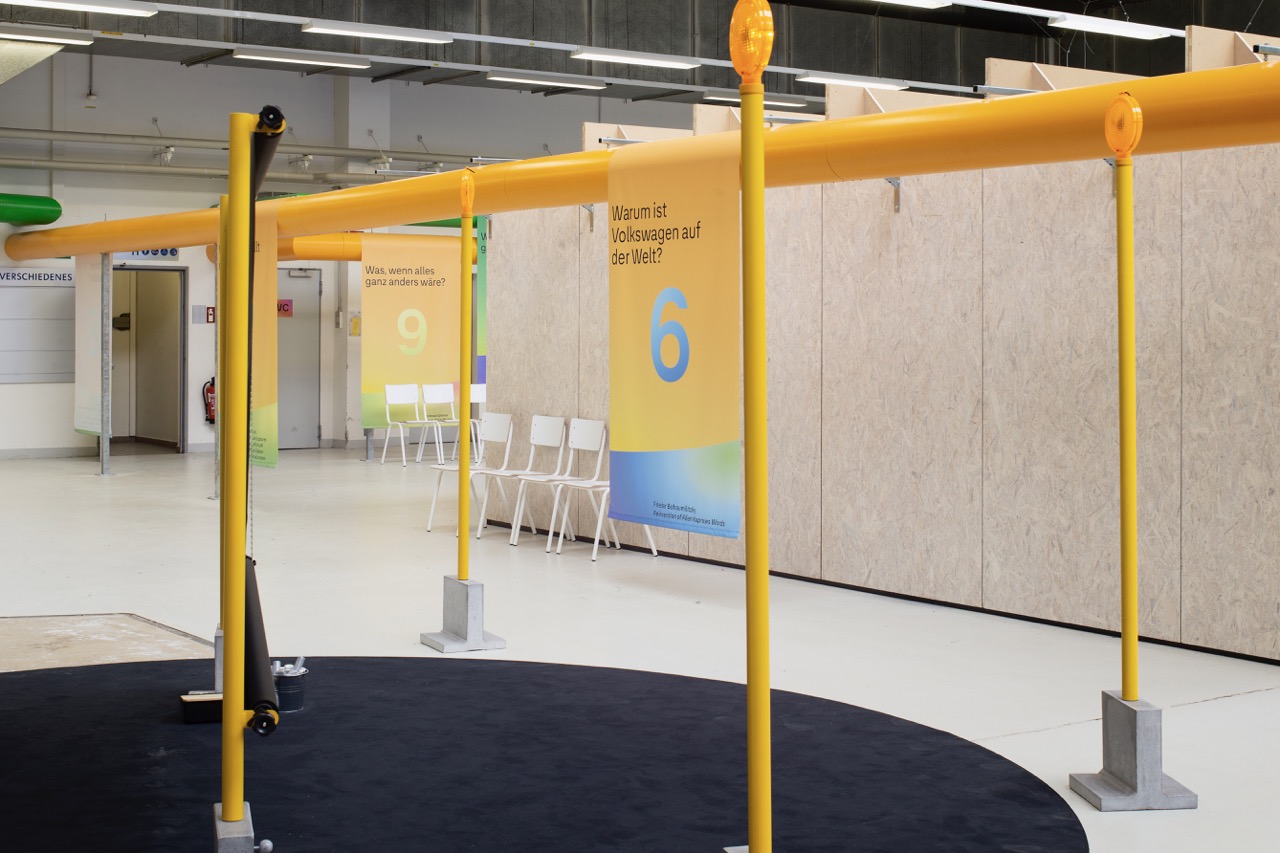
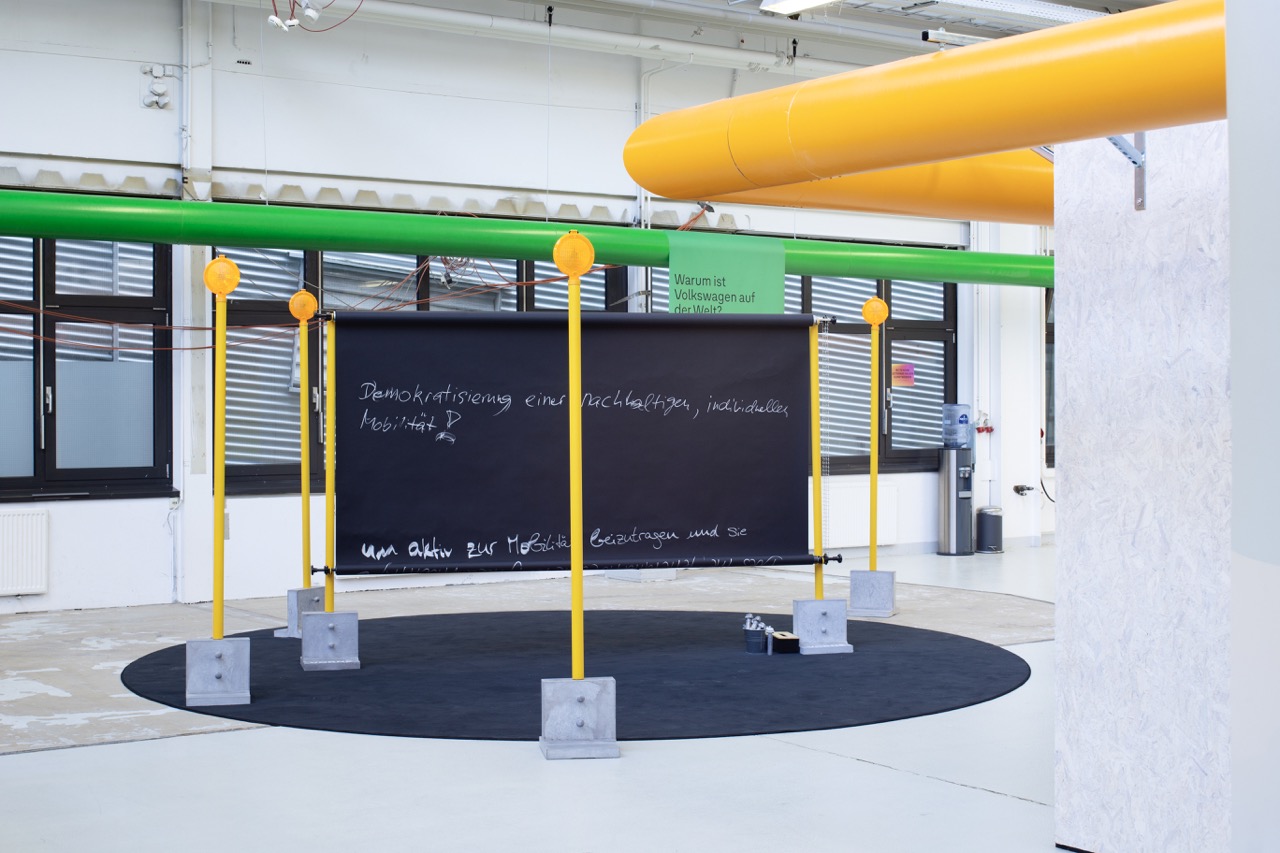
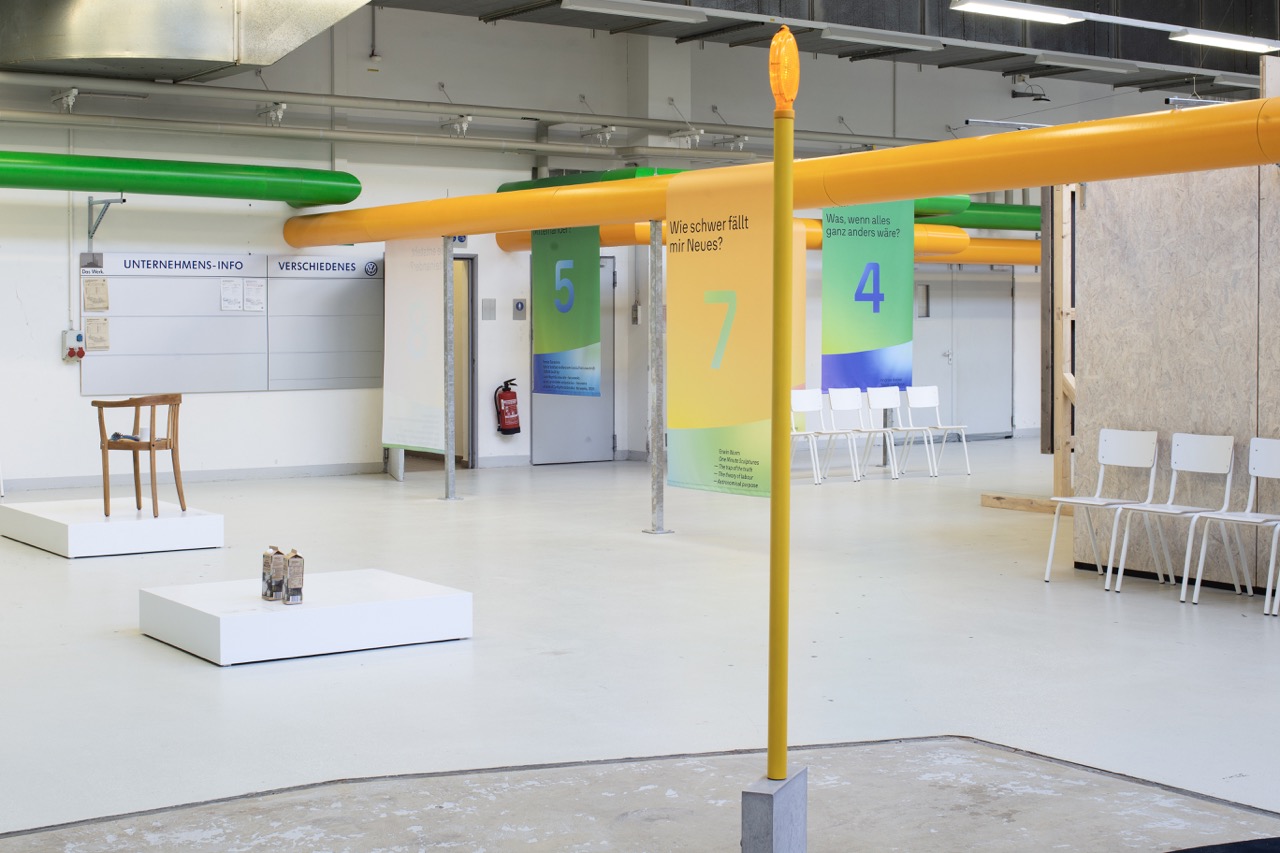
The Installation at the exhibition Parcours für Veränderung (A Course for Change) makes use of Allan Kaprow’s work Words. Participants can and should actively take part in his action art. The Words installation was first presented by Kaprow in 1962 and consists of three parts: flags to be written on, three record players, and blinking light bulbs. Part of Kaprow’s concept was also that he readily released his works of art to be reinvented. The Reinvention of Allan Kaprow’s “Words” translates the work into the current context of the transformation taking place at Volkswagen. The blinking light bulbs have become construction-site lights, the flags have become a large role of paper that can be rolled out and written on both sides with answers to the question: Why does Volkswagen exist? In addition to their own position, participants should always take the opposing position. The question “Why does Volkswagen exist?” therefore also led to reflection on the consequences of internalized positions and attitudes. For the accompanying publication, theses and counter-theses were presented and analyzed in an infographic.
The Parcours for Change is an exhibition, workshop, and mentoring program for Volkswagen executives. The concept: transformation through art. Volkswagen is testing a new form of continuing education with the Parcours. 4,000 executives engage with contemporary art, allow themselves to be challenged by it, and ultimately question themselves and their company: “Who could we be?” To this end, the executives go through a course lasting several hours, in which they engage with works of art by Gregor Schneider, Julius von Bismarck, Tomas Saraceno, Erwin Wurm, and others. Engaging with art is intended to help them reflect on themselves.
VW Group Academy, Wolfsburg.
Idea: VW Group Academy, Ralph Linde
Curatorial Concept: Vorstellungskraft X, Friedrich von Borries und Torsten Fremer Exhibition architecture: Kooperative für Darstellungspolitik
Exhibition graphics: Ingo Offermanns
Production: Klubhaus. Agentur für intelligente Live-Kommunikation, Cynthia Lammich und Romy Brunken
Project lead Volkswagen Akademie: Daniela Galetto
Photos: Max Schwarzmann
Idea: VW Group Academy, Ralph Linde
Curatorial Concept: Vorstellungskraft X, Friedrich von Borries und Torsten Fremer Exhibition architecture: Kooperative für Darstellungspolitik
Exhibition graphics: Ingo Offermanns
Production: Klubhaus. Agentur für intelligente Live-Kommunikation, Cynthia Lammich und Romy Brunken
Project lead Volkswagen Akademie: Daniela Galetto
Photos: Max Schwarzmann
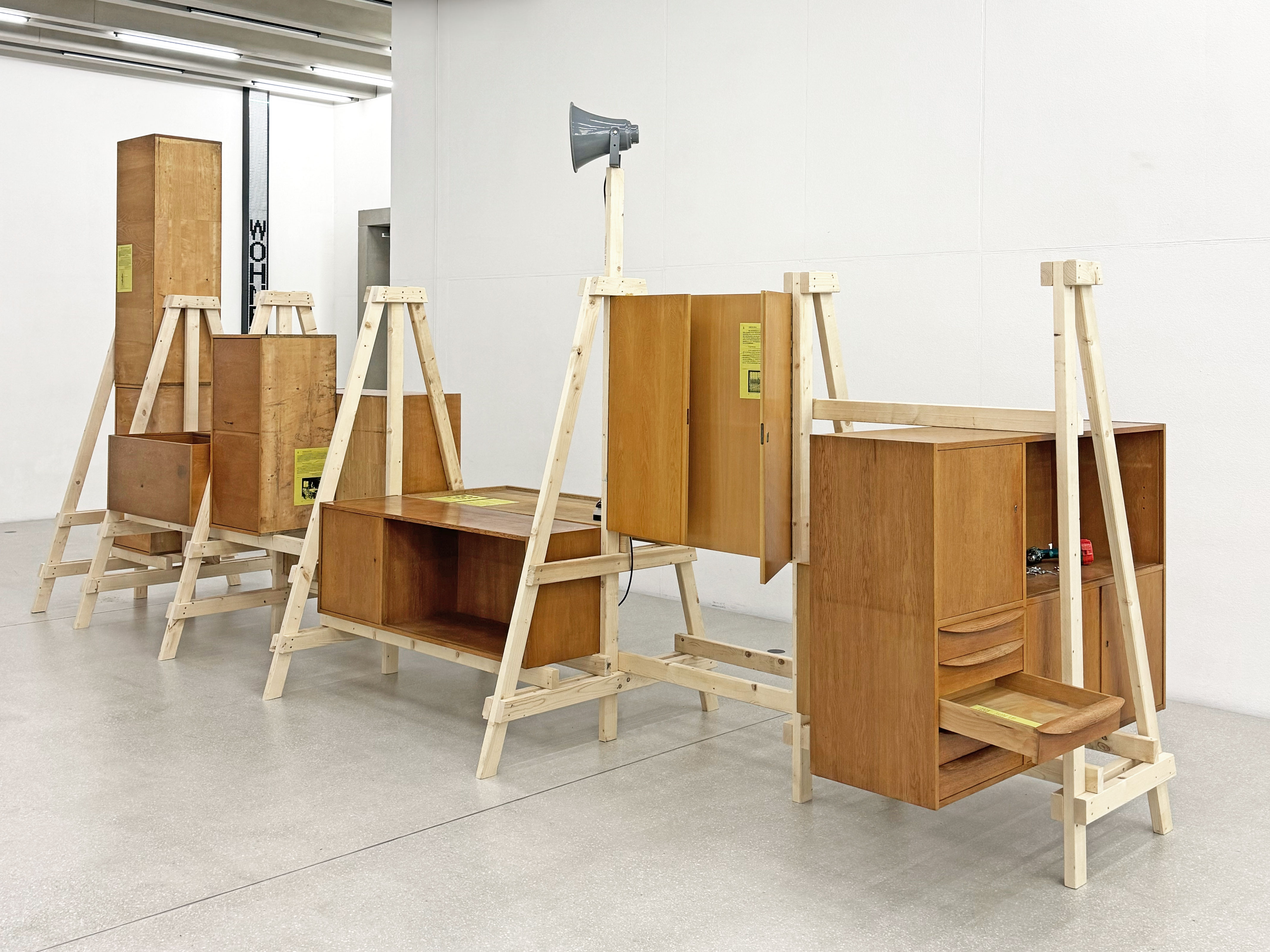
Die Ausstellung zum Thema „Bauhaus und Nationalsozialismus“ verdeutlicht die vielfältigen Wege, die Künstlerinnen und Künstler im Umgang mit einem totalitären Herrschaftssystem eingeschlagen haben. Sie will damit neue, auch unbequeme Perspektiven auf die Bauhausgeschichte aufzeigen. Denn noch lange nach 1945 hielt sich die Illusion einer einzig „guten" und verfolgten Moderne. Eine innovative künstlerische Haltung allein, so zeigen die Schicksale vieler Bauhaus-Angehörigen, schützt noch nicht gegen die Verführbarkeit durch den Faschismus. Dies macht die Rolle der Kunst in einer liberalen und weltoffenen Gesellschaft zu einem zentralen Thema der Ausstellung.
Komplettiert wird die dreiteilige Ausstellung durch die Installation „Denkmal über Ehrlichkeit", das aus den berühmten Typenmöbeln 602 des Bauhäuslers Franz Ehrlich gebaut wurde. Die Installation der Designforscher Friedrich von Borries, Frieder Bohaumilitzky und Jens-Uwe Fischer dekonstruiert die komplexe Biografie des Bauhaus-Architekten, Grafikers und Designers Ehrlich (1907-1984), der außerdem Widerstandskämpfer und Buchenwaldhäftling war, aber auch SS-Architekt, Stasi-Informant und Hochstapler. Ausgehend von seiner Geschichte hinterfragt das Denkmal die dominanten Selbstverständnisse der Gegenwart: Wie ehrlich sind wir?

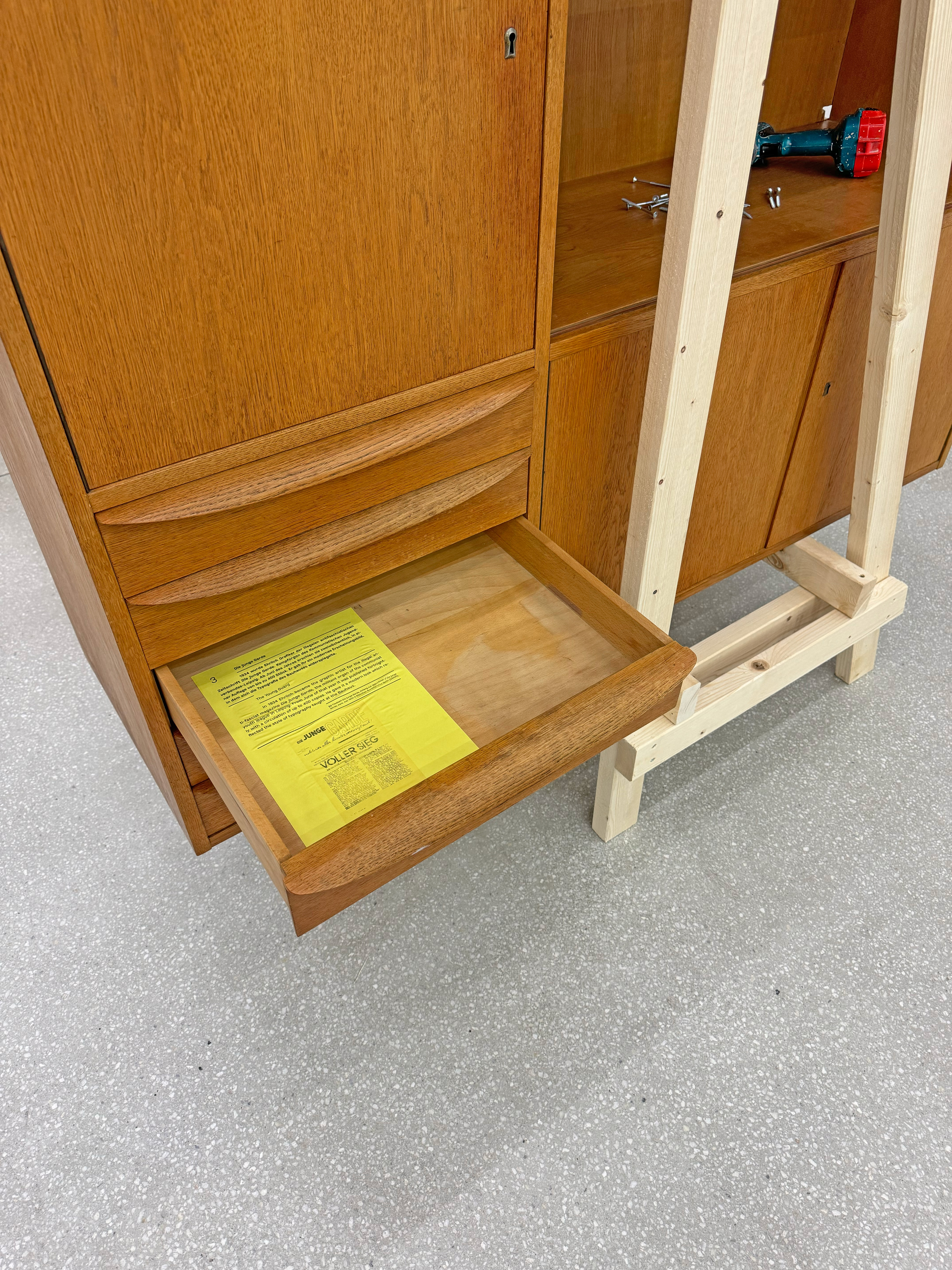
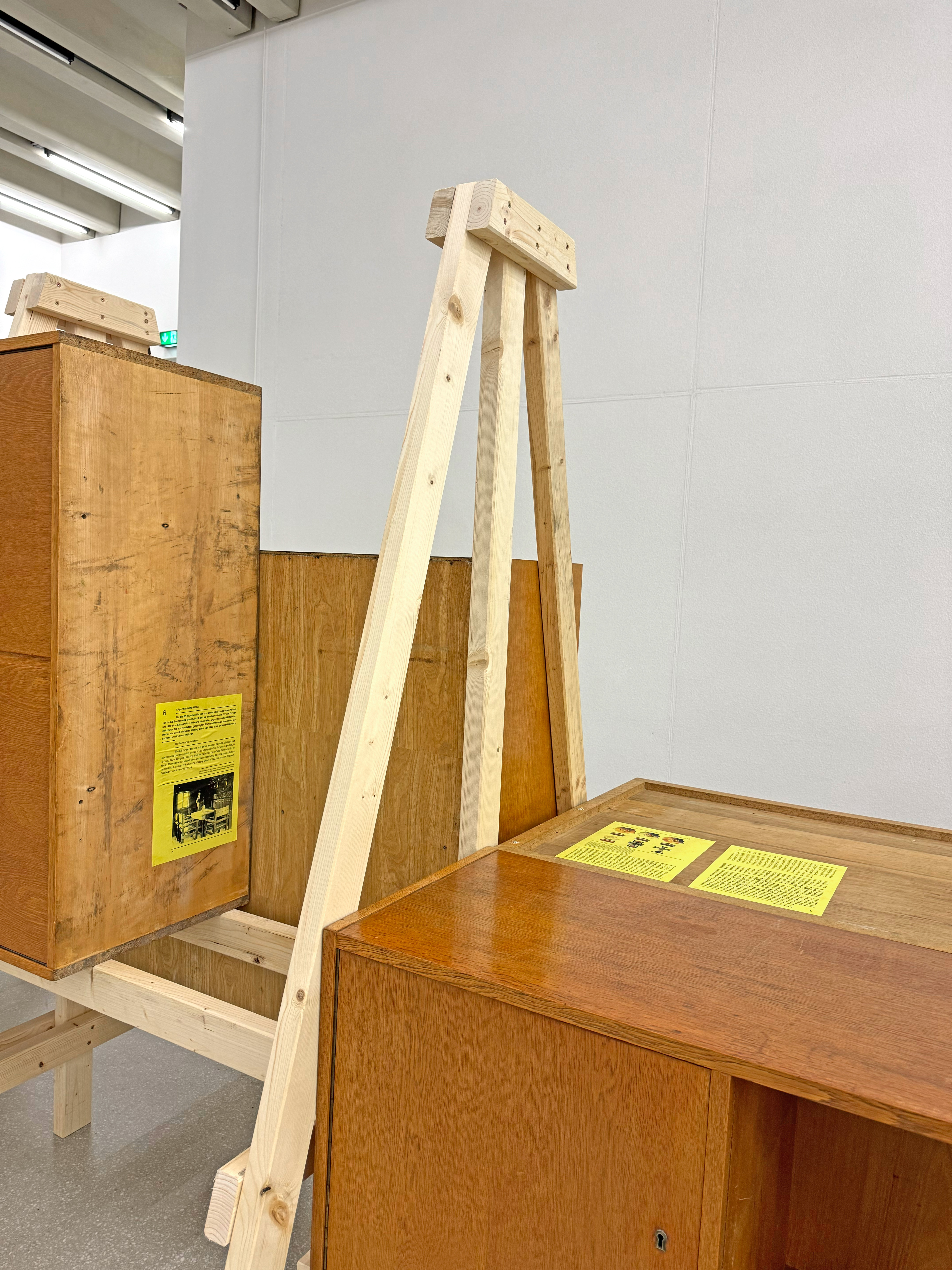
Bauhaus-Museum Weimar
Ausstellung: Bauhaus und Nationalsozialismus
Beitrag: Friedrich von Borries · Frieder Bohaumilitzky · Jens-Uwe Fischer.
Grafikdesign: Ingo Offermanns
Ausstellung: Bauhaus und Nationalsozialismus
Beitrag: Friedrich von Borries · Frieder Bohaumilitzky · Jens-Uwe Fischer.
Grafikdesign: Ingo Offermanns
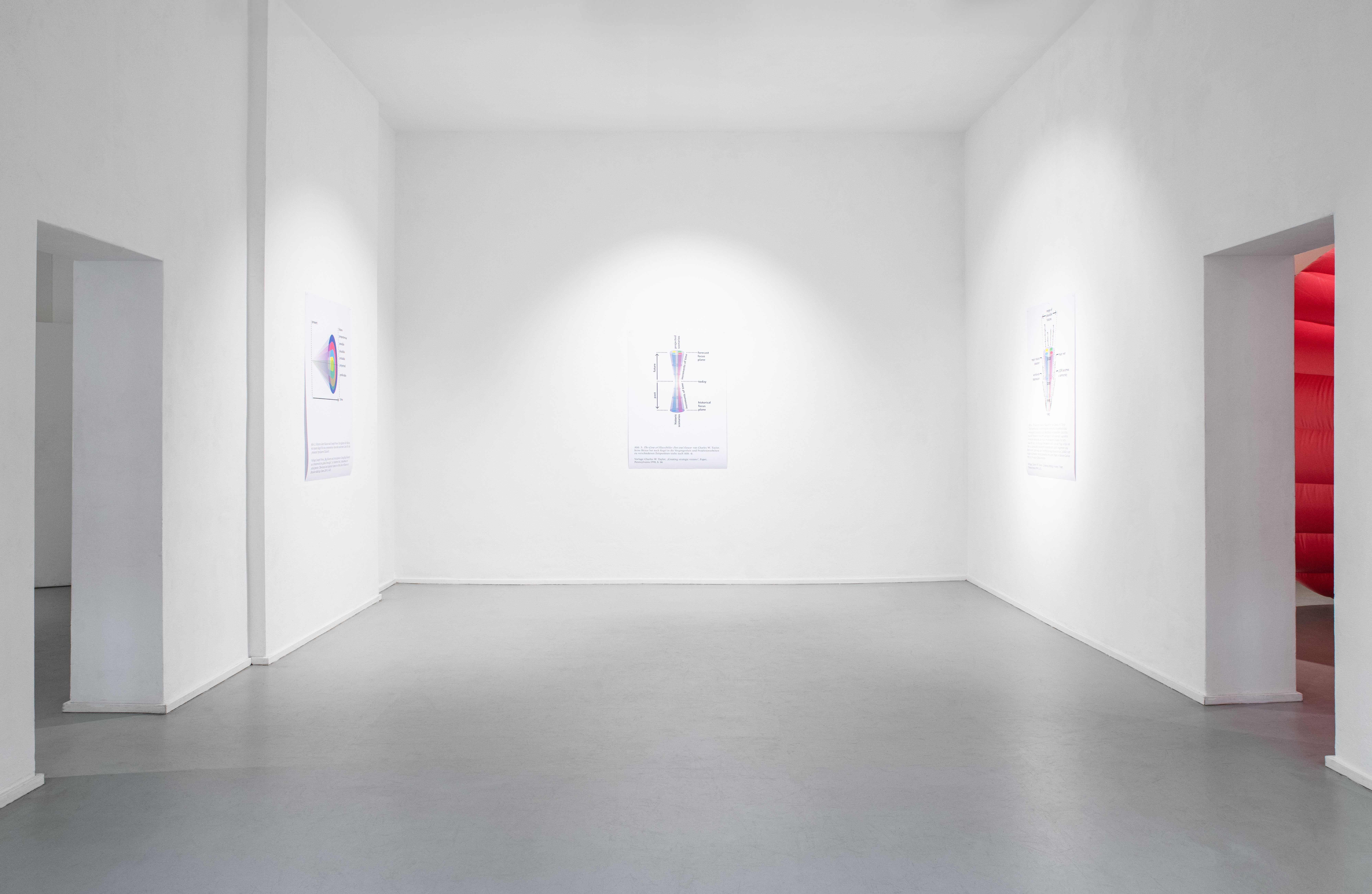
When it comes to speculation in art in general and design in particular, there is one sketch that is repeatedly used as an illustration. The illustration is called Futures Cone and has been circulating for decades in different variations among futurists, foresight experts, artists and designers. It always consists of differently colored cones whose nested funnels open into the future. The various adaptations and the context in which they were created refer to different aims of speculation and different ideas of the present and the future.
Fußnoten zur Zukunft is an experimental essay exhibition that associatively traces the stories associated with the history of the Futures Cone, reads them as artifacts and makes them accessible in a sensory and physical directory of sources. It is based on the text "Die Ambiguität der Spekulation. Futures Cone-Skizzen und ihre Kontexte" from the publication Specology. Zu einer ästhetischen Forschung, published by Hamburg-based Adocs-Verlag in 2023. This text is made accessible via a flyer that can be unfolded into both a poster and a mini-publication.
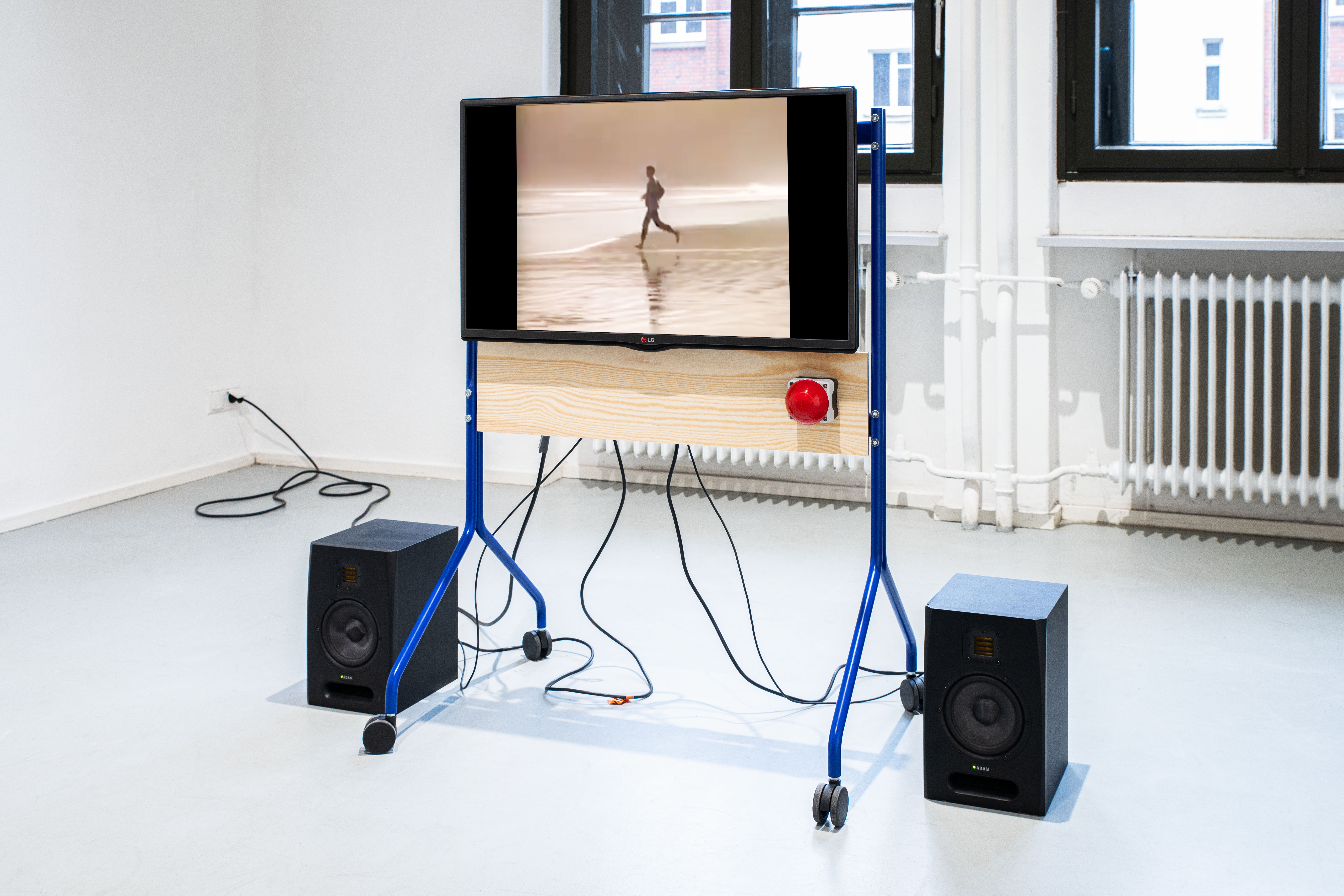
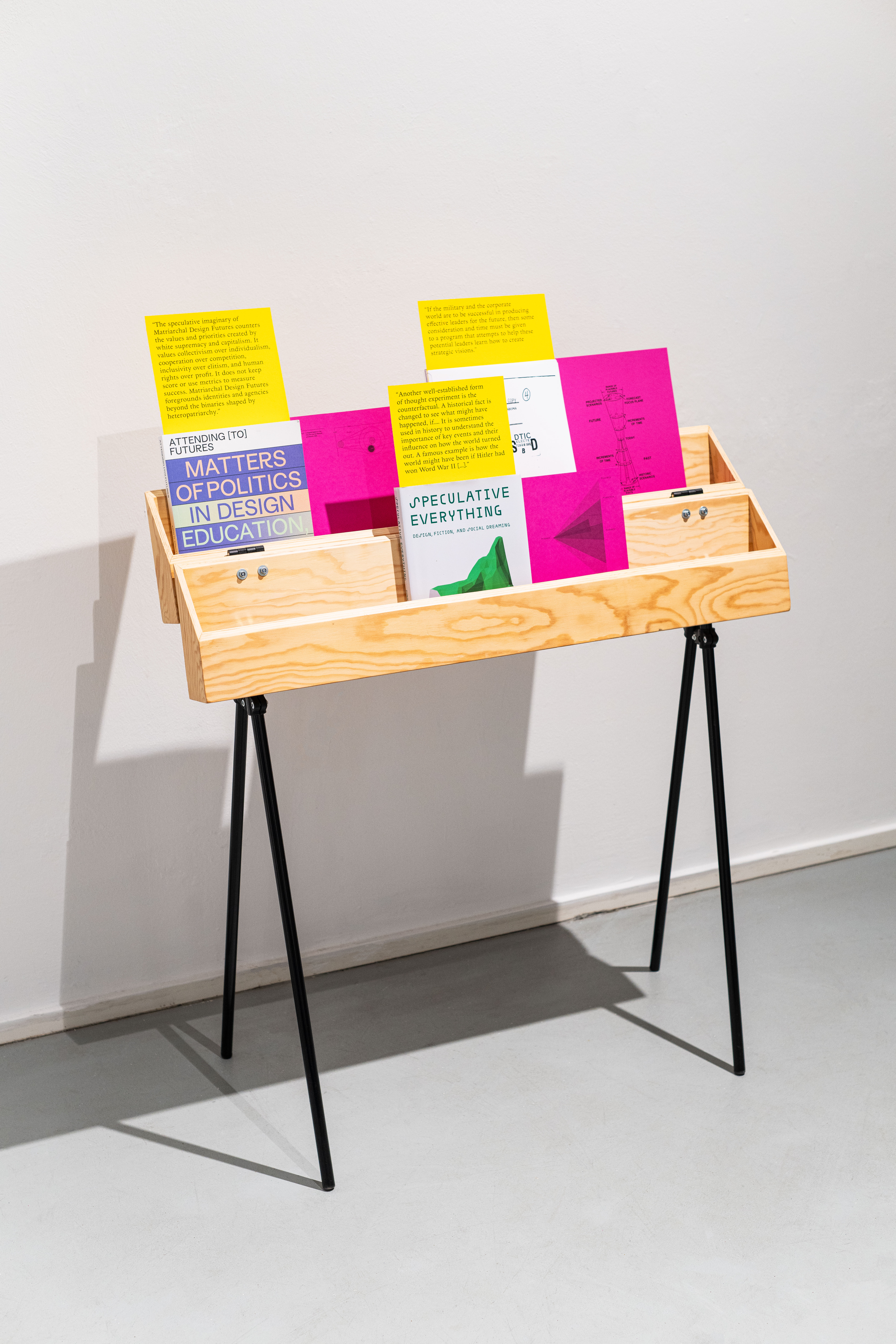
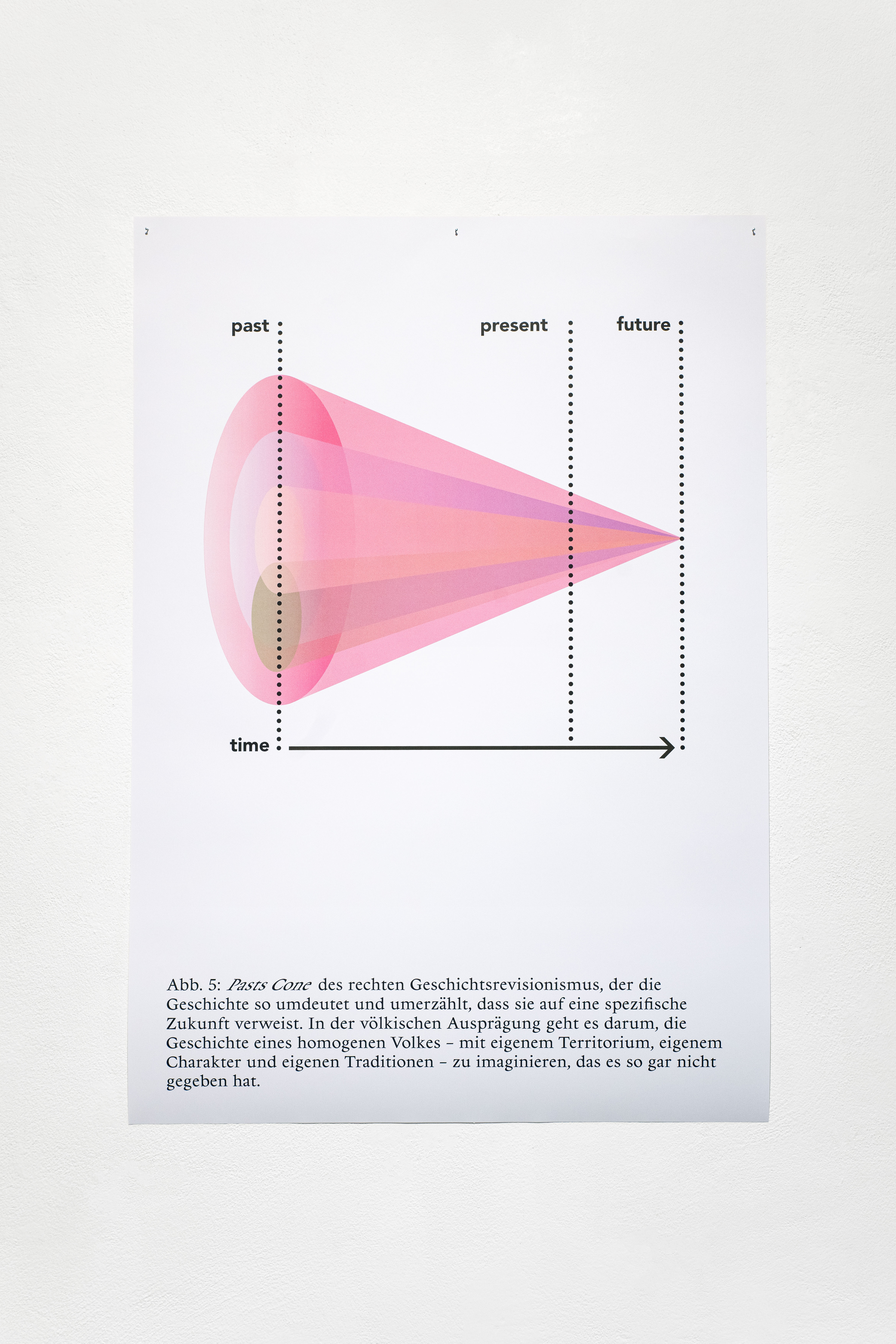
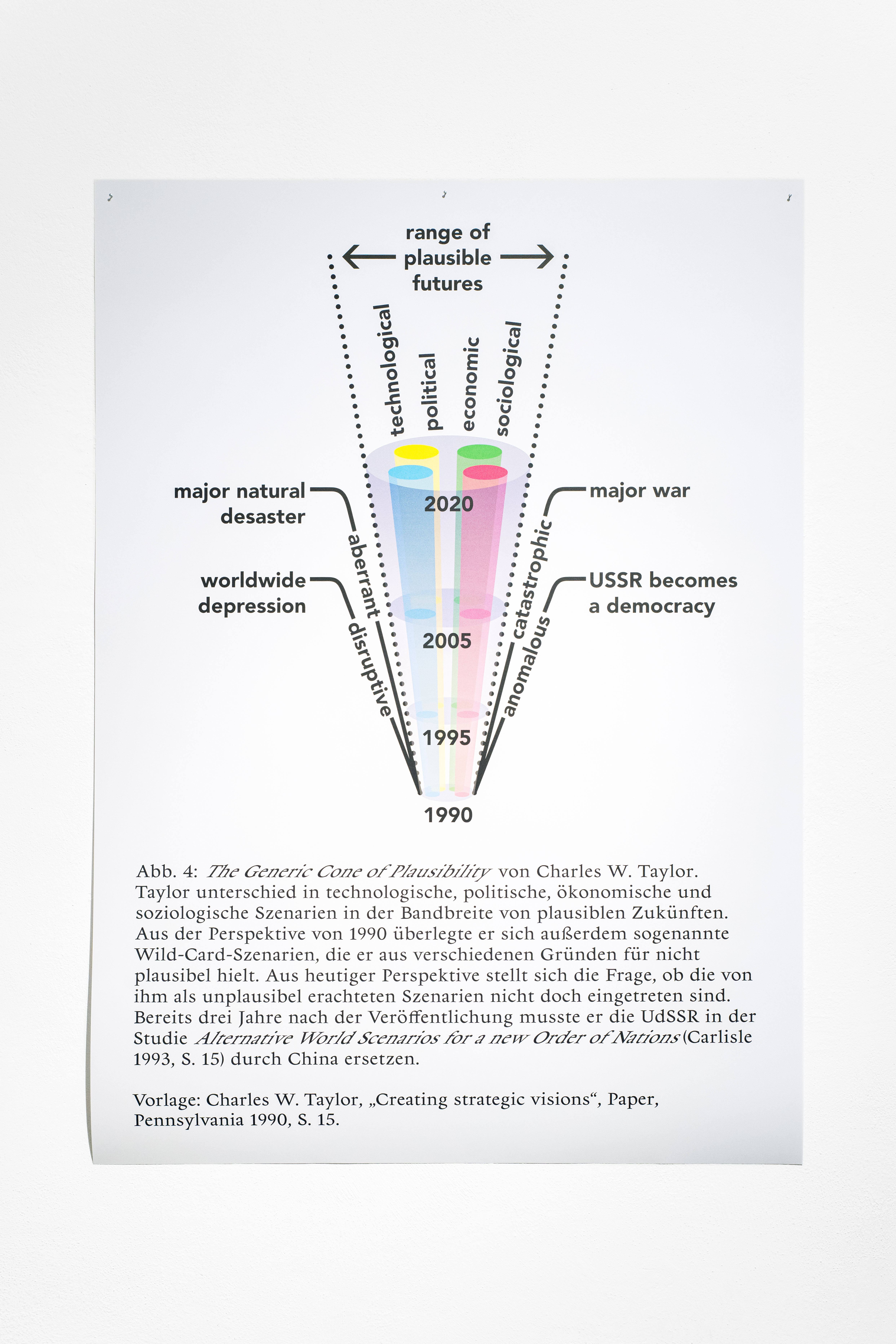
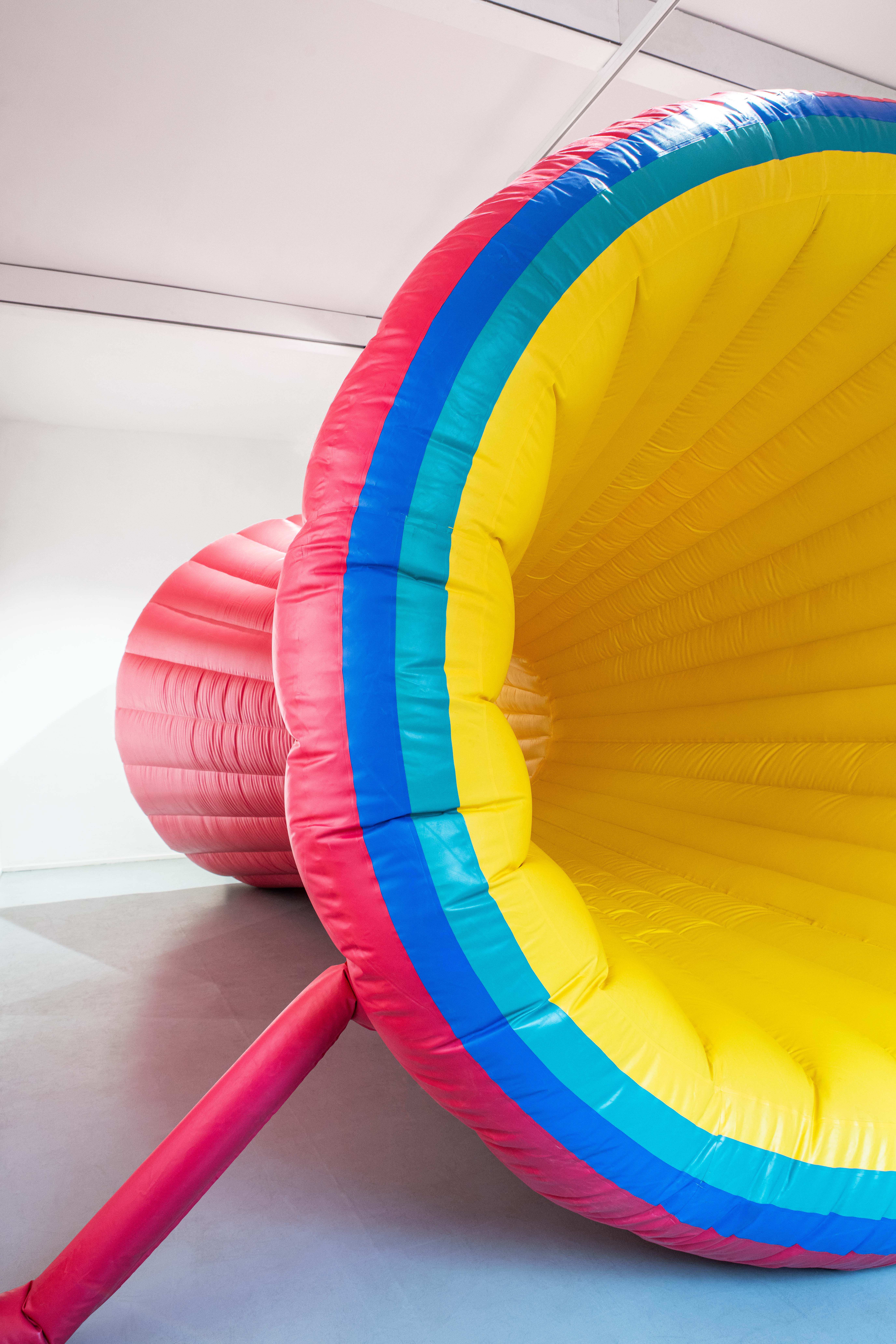
Frappant Galerie, Hamburg
Exhibition: studio lose (Frieder Bohaumilitzky · Ina Römling · Torben Körschkes)
Text: Frieder Bohaumilitzky
Flyer: HEFT Kollektiv (Ina Römling · Torben Körschkes)
Photos: Maik Gräf
Funded by the Freie und Hansestadt Hamburg, ministry of culture and media.
Exhibition: studio lose (Frieder Bohaumilitzky · Ina Römling · Torben Körschkes)
Text: Frieder Bohaumilitzky
Flyer: HEFT Kollektiv (Ina Römling · Torben Körschkes)
Photos: Maik Gräf
Funded by the Freie und Hansestadt Hamburg, ministry of culture and media.

„Unter dem Pflaster liegt der Strand“ is the title of the collaborative installation by Frieder Bohaumilitzky and Ursula Klein on the occasion of the Vienna Design Week. The title is an adaptation of the well-known saying of the 68 movement and in this context refers to the political relevance of design projects in public space.
The contribution was part of the dialogic format of Passionswege, in which international design creators are brought together with Viennese craft businesses. Ursula Klein is the third generation of her family to run the plastic processing company schulteswien, which produces inflatable one-offs for artists and museums.
In their collaboration, Bohaumilitzky and Klein combined their passion for inflatable objects with their interest in political content. They used an space-filling inflatable ensemble to occupy a vacant lot between buildings in Vienna's 6th district.
During the day, the installation invited visitors to gather and hang out; in the evening, it became a space for discourse. In a series of open talks on the installation and in the adjacent workshop of schulteswien, the two discussed the potential of design in the face of current political challenges. The individual narrative elements of the installation served as starting points for the discussions with architects, filmmakers, historians, artists, politicians and political scientists.
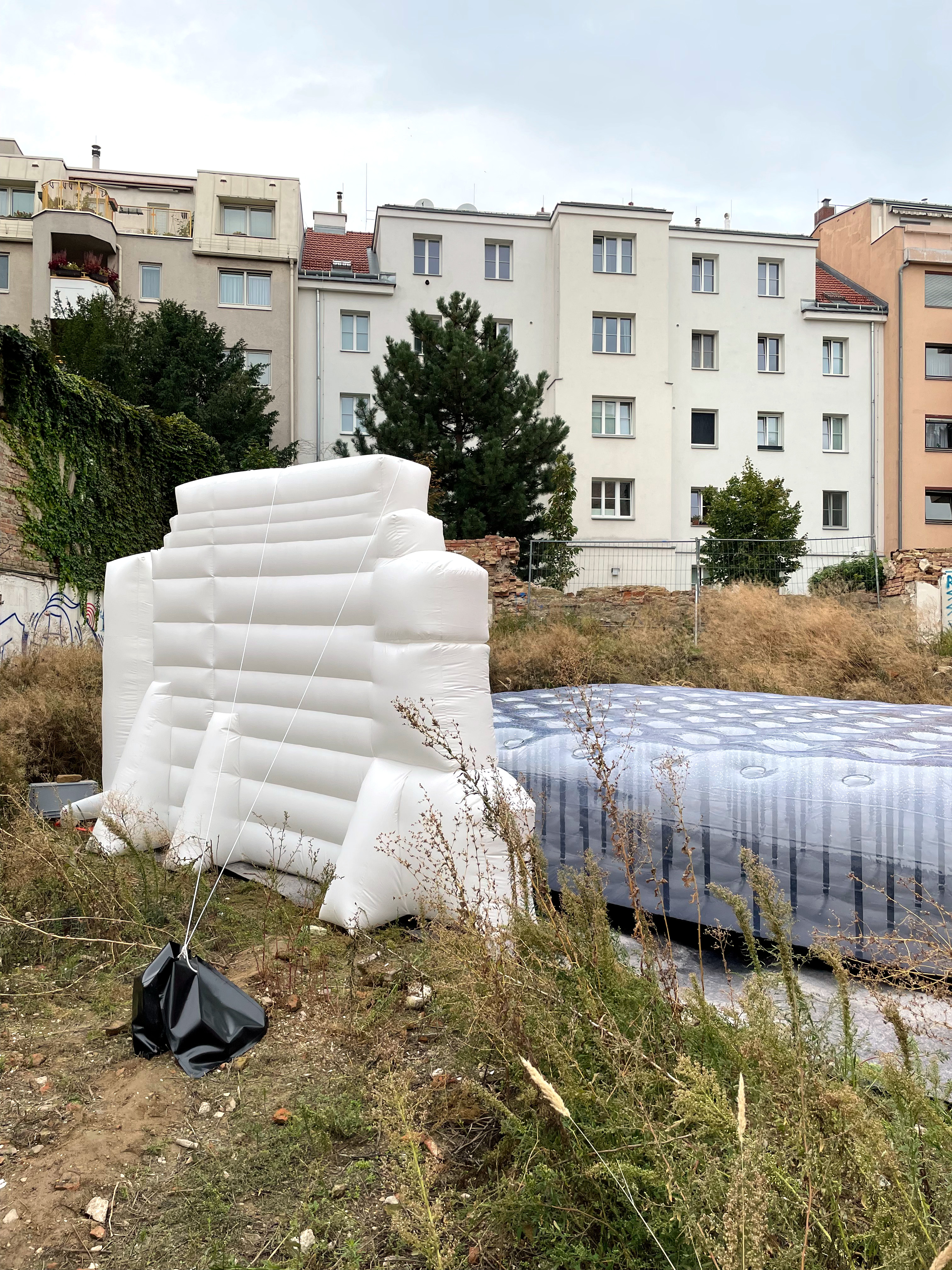
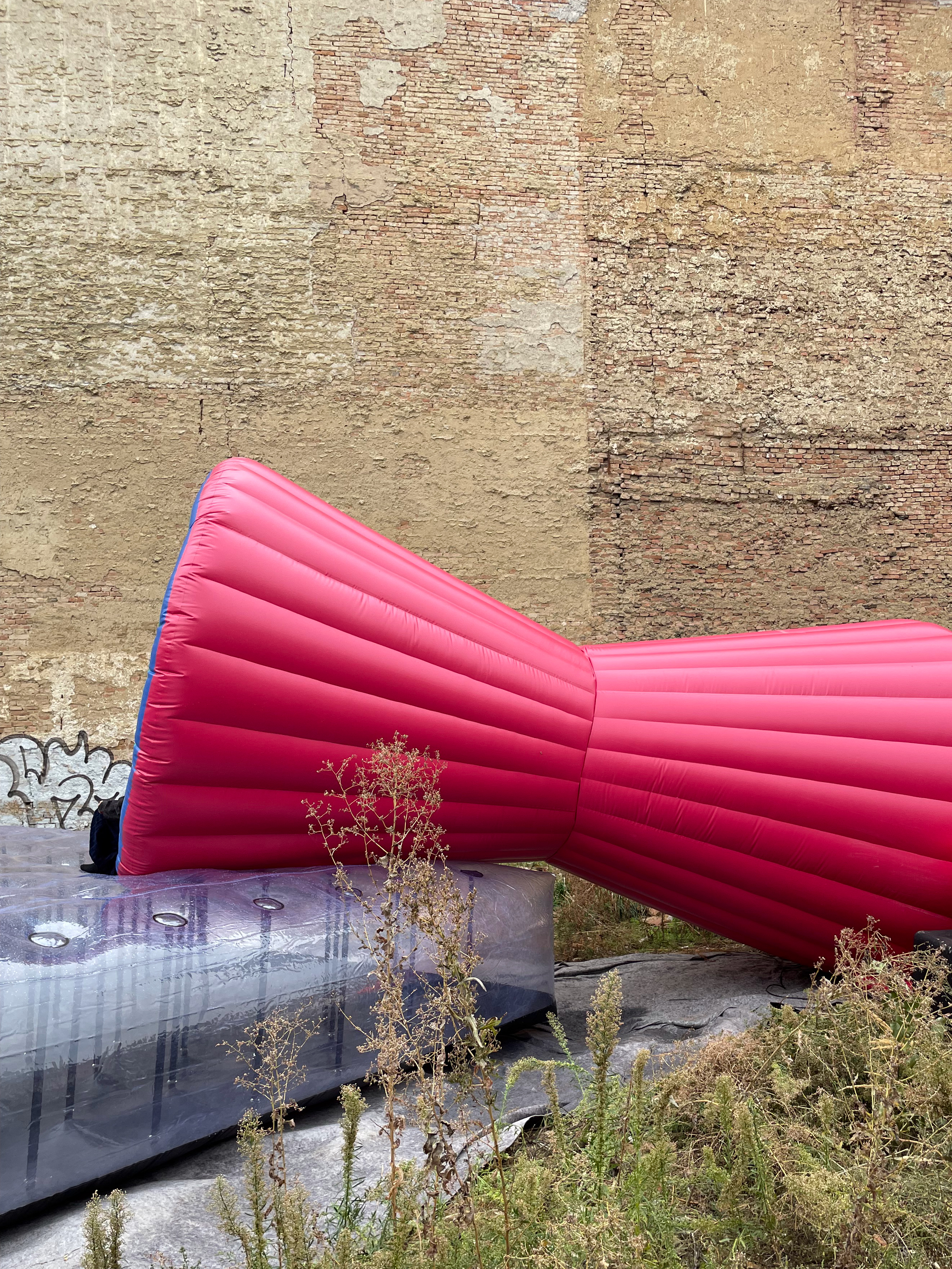
Passionswege, Vienna Design Week
Concept: Frieder Bohaumilitzky · Ursula Klein / schulteswien
Curated by: Nadja Zerunian · Gabriel Roland
Setdesign: Frieder Bohaumilitzky · Ursula Klein / schulteswien
Production: Ursula Klein / schulteswien
→ Detailed program
Concept: Frieder Bohaumilitzky · Ursula Klein / schulteswien
Curated by: Nadja Zerunian · Gabriel Roland
Setdesign: Frieder Bohaumilitzky · Ursula Klein / schulteswien
Production: Ursula Klein / schulteswien
→ Detailed program